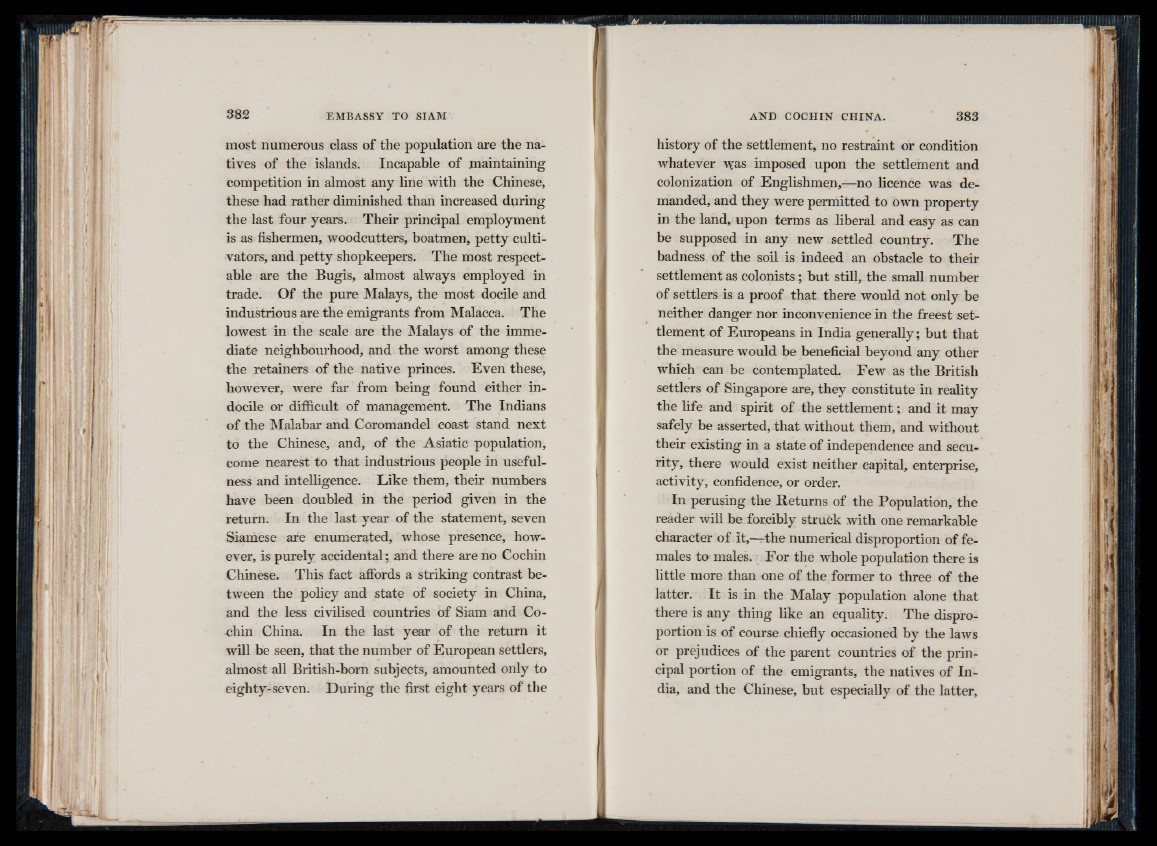
most numerous class of the population are the natives
of the islands. Incapable of maintaining
competition in almost any line with the Chinese,
these had rather diminished than increased during
the last four years. Their principal employment
is as fishermen, woodcutters, boatmen, petty cultivators,
and petty shopkeepers. The most respectable
are the Bugis, almost always employed in
trade. Of the pure Malays, the most docile and
industrious are the emigrants from Malacca. The
lowest in the scale are the Malays of the immediate
neighbourhood, and the worst among these
the retainers of the native princes. Even these,
however, were far from being found either indocile
or difficult of management. The Indians
of the Malabar and Coromandel coast stand next
to the Chinese, and, of the Asiatic population,
come nearest to that industrious people in usefulness
and intelligence. Like them, their numbers
have been doubled in the period given in the
return. In the last year of the statement, seven
Siamese are enumerated, whose presence, however,
is purely accidental; and there are no Cochin
Chinese. This fact affords a striking contrast between
the policy and state of society in China,
and the less civilised countries of Siam and Co-
•chin China. In the last year of the return it
will be seen, that the number of European settlers,
almost all British-born subjects, amounted only to
eighty-seven. During the first eight years of the
history of the settlement, no restraint or condition
whatever ^as imposed upon the settlement and
colonization of Englishmen,—no licence was demanded,
and they were permitted to own property
in the land, upon terms as liberal and easy as can
be supposed in any new settled country. The
badness of the soil is indeed an obstacle to their
settlement as colonists; but still, the small number
of settlers is a proof that there would not only be
neither danger nor inconvenience in the freest settlement
of Europeans in India generally; but that
the measure would be beneficial beyond any other
which can be contemplated. Few as the British
settlers of Singapore are, they constitute in reality
the life and spirit of the settlement; and it may
safely be asserted, that without them, and without
their existing in a state of independence and security,
there would exist neither capital, enterprise,
activity, confidence, or order.
In perusing the Returns of the Population, the
reader will be forcibly struck with one remarkable
character of It,—rthe numerical disproportion of females
to males. For the whole population there is
little more than one of the former to three of the
latter. I t is in the Malay population alone that
there is any thing like an equality. The disproportion
is of course chiefly occasioned by the laws
or prejudices of the parent countries of the principal
portion of the emigrants, the natives of India,
and the Chinese, but especially of the latter,